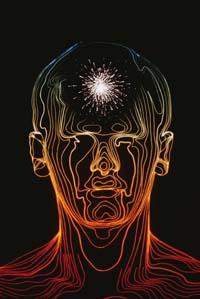Intellectual doping
These drugs that ignite brain activity are called s mart drugs, that is, fast drugs. Within the healthcare system, they are mainly used to treat alterations related to concentration and memory, but also for those who do not have health problems, including researchers.

These drugs that ignite brain activity are called s mart drugs, that is, fast drugs. Within the healthcare system, they are mainly used to treat alterations related to concentration and memory, but also for those who do not have health problems, including researchers.
The bill came to light a few months ago. Two researchers from the University of Cambridge, experts in psychiatry, behavior and neurosciences, published an article on these substances in the scientific journal Nature. The article intended to provoke debate, since the therapeutic use is well regulated, but the authors have no doubt that these substances are used beyond the therapeutic objective. And they find it necessary to analyze in depth the long-term effects of this other consumption, side effects, etc. so that whoever wants to consume responsibly has all the information.
Among other things, in the aforementioned article, it was mentioned that some of these substances do not consider that they will generate great controversies, such as, for example, substances with low or null side effects, and with moderate effects, such as those that prevent some oblivion or help to concentrate on a laborious day. "Few think that drinking a coffee at work gives it an unfair advantage," they say: "Taking as a pill or drink changes something? ".
This article received many responses on the web of Nature and those of the journal decided to make a survey to know how many researchers take these substances. The survey was published on the internet and the response was voluntary. A total of 1,400 responses from 60 countries.
Specifically, they asked about the three drugs: methylphenidate (Ritalin), a drug used to treat children with lack of attention and problems of hyperactivity, also known in the university, especially at the time of exams; modafine (Provigil), which is used to overcome the jet-laga and treat alterations of sleep; and beta-blockers, against cardiac arrhythmias and anxiety.
One in five respondents recognize taking any of these substances or similar. Among consumers are researchers of all ages, who consume mostly methylphenidate (two of every three). Almost half adopts modafilla and 15% beta-blockers like propanolol. In view of the numbers it is deduced that some researchers consume more than one substance. In addition, 80% of respondents reported that they ingest this type of substance, including adeal (an amphetamine similar to methylphenidate), dexedrine and others, as well as gingko and omega-3 fatty acids.
The survey also asked about side effects and nearly half of respondents have responded that they have had side effects such as headache, tremors, anxiety, and insomnia. However, they also point out that when intercaling consumption, side effects are reduced. Many get these substances within the health system and through recipes, but others buy them online.
It is clear that if accepted or not, these substances are there and consumption, both therapeutic and not. We will see what their path is, but at least the debate on consumption has begun.
Published in Gara
Buletina
Bidali zure helbide elektronikoa eta jaso asteroko buletina zure sarrera-ontzian











